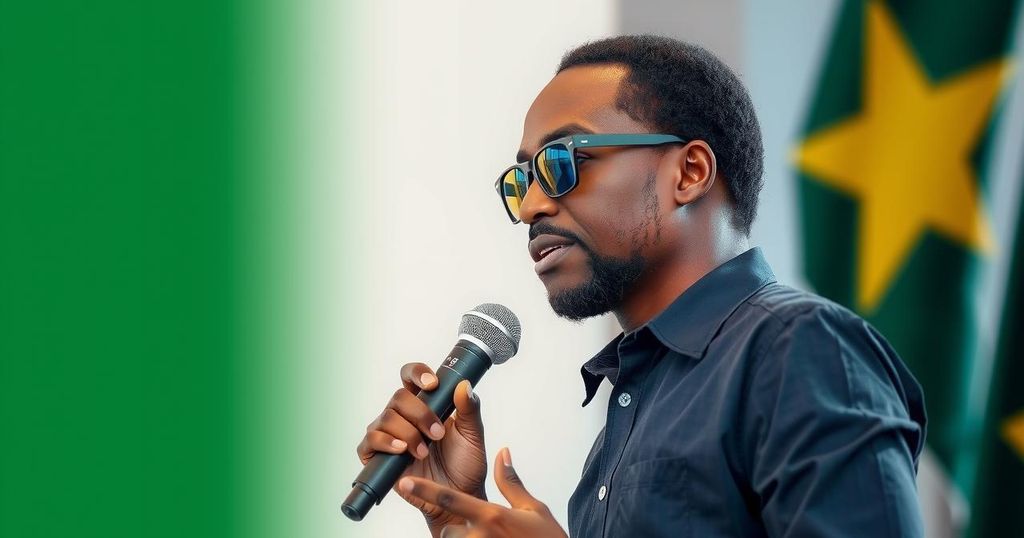Young Ghanaians are viewing the upcoming presidential election as a crucial opportunity to escape economic hardships, with the main contest primarily between Vice President Mahamudu Bawumia and former President John Mahama. Issues such as high inflation, unemployment, and illegal gold mining contribute to public discontent, while concerns about electoral integrity are also prevalent. The outcome of this election is expected to reflect the aspirations of the younger demographic amidst limited political choices.
In Ghana, young citizens view the upcoming presidential election as a critical opportunity to alleviate the economic hardships they face. Joseph Antwi, a first-time voter and trader from Accra, expressed his desire to see the incumbent government ousted, citing failures in fulfilling electoral promises and managing the economic crisis. With 12 candidates in the race, the contest primarily narrows between the ruling party’s Vice President Mahamudu Bawumia and former President John Mahama representing the opposition.
During their final campaign rallies, both candidates articulated their visions to address the country’s pressing economic challenges. While Bawumia pledged to build upon the current government’s initiatives, Mahama called for a comprehensive “reset” across various sectors. The atmosphere in Accra reflects a sense of urgency as citizens grapple with escalating cost-of-living issues, high inflation, and unemployment concerns. Furthermore, issues stemming from illegal gold mining are contributing to environmental degradation and discontent among citizens.
Concerns about electoral integrity have also emerged, with opposition parties alleging potential rigging by the election commission, although such claims remain unsubstantiated. Jean Mensa, the head of the electoral commission, emphasized the importance of transparency and inclusivity in the electoral process. As the election approaches, young voters are left to navigate limited choices in a landscape dominated by longstanding political rivalries.
The political landscape in Ghana is characterized by periodic electoral contests, primarily dominated by the New Patriotic Party (NPP) and the National Democratic Congress (NDC). Economic challenges have intensified recently, including rising inflation and high public debt, making the presidential election a critical moment for young voters. Their disenchantment with the current government has prompted calls for change, even as they navigate a political environment where alternatives appear limited. The issue of illegal mining further complicates the socio-economic context, reflecting desperation among the populace seeking better livelihoods. This election sees candidates vying for the presidency amid a backdrop of heightened political activities and public demonstrations, indicating the pervasive nature of citizens’ grievances. Anxiety over electoral transparency is palpable, particularly as allegations of vote rigging circulate. As the nation prepares for this significant electoral event, the voices of young voters signal a potential shift in public sentiment regarding governance and accountability.
In summary, the forthcoming presidential election in Ghana is perceived by many young voters as a pivotal chance to address their economic grievances, particularly those regarding job scarcity and living costs. With the election field predominantly featuring two major candidates, Bawumia and Mahama, voters are faced with choices that may not fully represent their aspirations. The looming concerns about electoral integrity can further complicate the commitment to achieving a fair democratic process. Young Ghanaians, eager for change, await the election outcome with a blend of hope and skepticism regarding the future direction of their nation’s leadership.
Original Source: apnews.com






